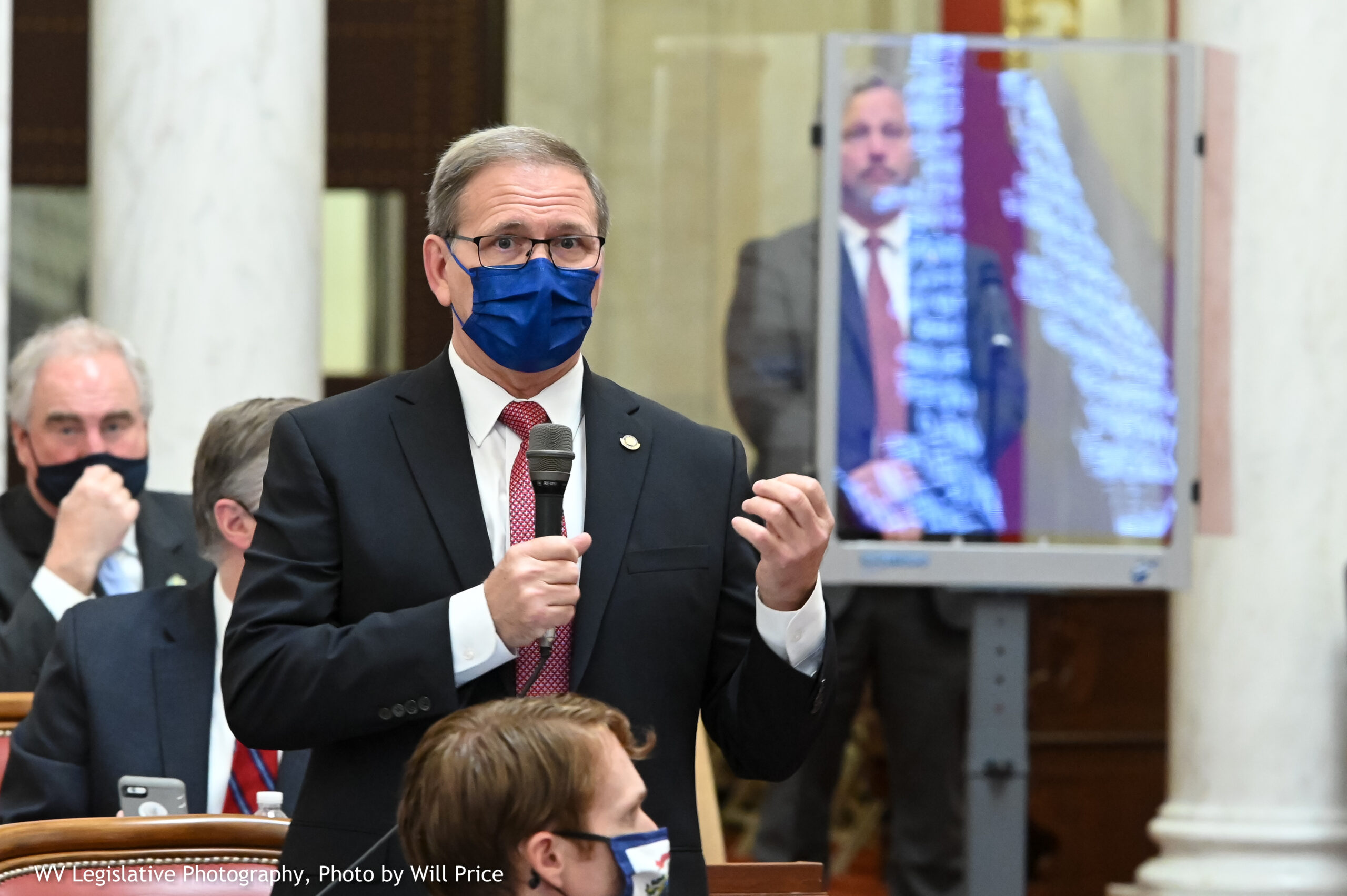MORGANTOWN – The state Senate spent four minutes shy of an hour Tuesday debating a bill to give county commissions veto power over local health boards.
And the House of Delegates spent less than five minutes approving a resolution to give the Legislature veto power over state Board of Education rules.
The health board bill is SB 12 and is opposed by county commissions and health boards across the state.
Health departments in the state operate under the authority of counties or cities, or some combination of both; the bill terms the counties and cities appointing authorities.
The bill says when a health board adopts or amends a rule, the board must serve public notice and receive public comment. The language of the new or amended rule, along with the public comment, will be presented to the appointing authority for approval or disapproval of all or part of the new or amended rule.
If disapproved, the health board may revise and resubmit the rule. Existing rules are grandfathered unless they’re amended.
Before the debate began, Health chair Mike Maroney, R-Marshall, offered an amendment requiring the Commissioner of Public Health to create a procedure for adverse decisions by health departments to be appealed to the Bureau for Public Health. Senators adopted it by voice vote.
And Sen. Robert Karnes, R-Randolph, offered an amendment to make appointing authority veto power retroactive by requiring them to review and approve or disapprove all existing health board rules within 10 years. It sparked lengthy debate.
Karnes said his amendment perfected the intent of the bill by making sure all existing rules are reviewed by elected representatives of the people and not by un-elected appointees.
Sen. Ron Stollings, D-Boone and a physician, said in opposition, “Whatever lipstick is on this pig will be washed away if this amendment passes.” It politicizes public health.
Majority Leader Tom Takubo, R-Kanawha and a physician, supported the bill but opposed the amendment. While the bill tries to create some accountability, he said, the amendment would walk back decades of public health progress and put an undue burden of process on struggling health boards.
Karnes agreed with Stollings that the amendment does politicize public health. Electing representatives is a political process and people affected by laws and rules should have a role in that process.
Karnes’ amendment failed in a voice vote and debate turned to the bill itself.
Sen. Mike Romano, D-Harrison, reminded his colleagues he served as a county commissioner and sat on his health board with medical professionals. “I was low man on the totem pole … with the least amount of knowledge.”
Health board members are accountable, he said, because they’re appointed. He doesn’t support the idea of giving veto power to politicians, he said. “We are simply taking public health out of the hands of experts and giving it to people like me.” Politicians will make decisions not based on public health but on their political futures.
Stollings said West Virginia’s political leaders have long understood politics and public health should be separated. And county commissioners have told him they worry this bill could create unwarranted legal exposure and liability.
Judiciary chair Charles Trump, R-Morgan, supported SB 12, calling it a structure of government bill.
“Government belongs to the people,” he said, and people elect representatives to make decisions for them. The federal government shows what can go wrong when elected officials hand off their power to un-elected agency bureaucrats.
County commissions, he said, already have oversight power on the decisions of other boards under their authority. This simply makes that consistent.
Appointed boards, he said, including health boards, have particular missions and such things as economic consequences. Issues of liberty don’t fall within their purview. “I think it forces balance.”
The vote was 21-13 with one Republican crossing over. All local senators voted with their party. SB 12 now goes to the House.
School board resolution
HJR 1 is a proposed Constitutional amendment to subject state Board of Education rule-making to legislative oversight. If adopted by both houses it would go before the voters.
Originally called the Supervision of Free Schools Modification Amendment, House Judiciary renamed it the Education Accountability Amendment.
Judiciary chair Moore Capito, R-Kanawha, said the state BOE is currently the only state agency not subject to legislative oversight. This amendment would change that.
There was no discussion. It passed 95-2 with one Republican and one Democrat voting no. All local delegates voted yes. It now goes to the Senate.
TWEET David Beard@dbeardtdp
EMAIL dbeard@dominionpost.com




